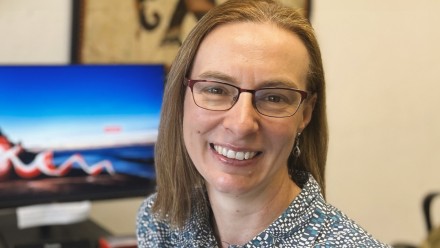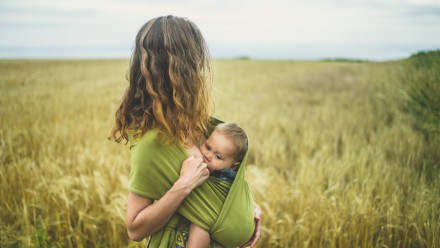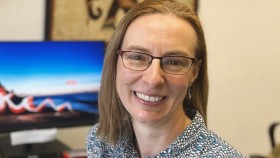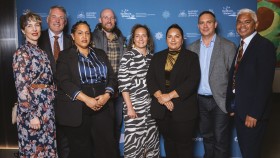‘Health for all’: Recognising breastfeeding as a carbon offset
Share
Country investments in breastfeeding should be considered a carbon offset in global plans for sustainable food, health, and economic systems, according to a new article authored by experts from The Australian National University (ANU), The University of Sydney, Alive & Thrive East Asia Pacific, Munster Technological University, Auckland University of Technology, and the World Health Organization (WHO).
The article, A proposal to recognize investment in breastfeeding as a carbon offset, is part of a special issue of the Bulletin of the World Health Organization (WHO) and reinforces its calls for radical changes in how decisions on human and planetary health and well-being are made.
“We propose redirecting international climate change financing to fund breastfeeding interventions,” said Associate Professor Julie Smith from ANU, the lead author of the article and an expert who has advised on breastfeeding economics to the WHO and the US Surgeon General.
According to Associate Professor Smith, this approach not only improves health but also mitigates the environmental damage generated by excessive milk formula production.
Environmental cost of formula milk
Part of the multibillion-dollar baby food industry, the rising sale of commercial milk formula is counted as boosting GDP growth, yet its harm to the environment is not accounted for.
“One kilogram of commercial milk formula generates around 11–14 kilograms of greenhouse gas and uses more than 5000 litres of water during the product life cycle, as well as multiple other harms to planetary health,” said co-author, Dr Phillip Baker, from the University of Sydney.
In other words, commercial milk formula generates a quarter of a tonne of greenhouse gas emissions to feed a baby for the first 6 months of life.
In contrast, breastfeeding contributes minimally to greenhouse gas emissions. However, despite its environmental benefits, 21.9 billion litres of human milk are invisible in GDP and ‘lost’ annually because governments fail to invest in supporting breastfeeding.
“Lack of support for breastfeeding also increases disease prevalence in women and children, leading to higher healthcare costs and caregiver burdens,” added Alive & Thrive East Asia Pacific Director and co-author, Roger Mathisen.
“Yet, GDP counts these extra costs as economic growth while ignoring the multiple environmental harms, like greenhouse gas emissions, linked with commercial milk formula production.”
“Expanding markets in these high greenhouse gas-emitting dairy products is recognised and rewarded by government subsidies, while the low-carbon footprint and immense productivity of breastfeeding women in producing vast quantities of highly valuable breastmilk is unrecognised and under-resourced,” warned Associate Professor Smith.
“Without recognising and investing to support women’s efforts on breastfeeding, the practice risks becoming extinct.”
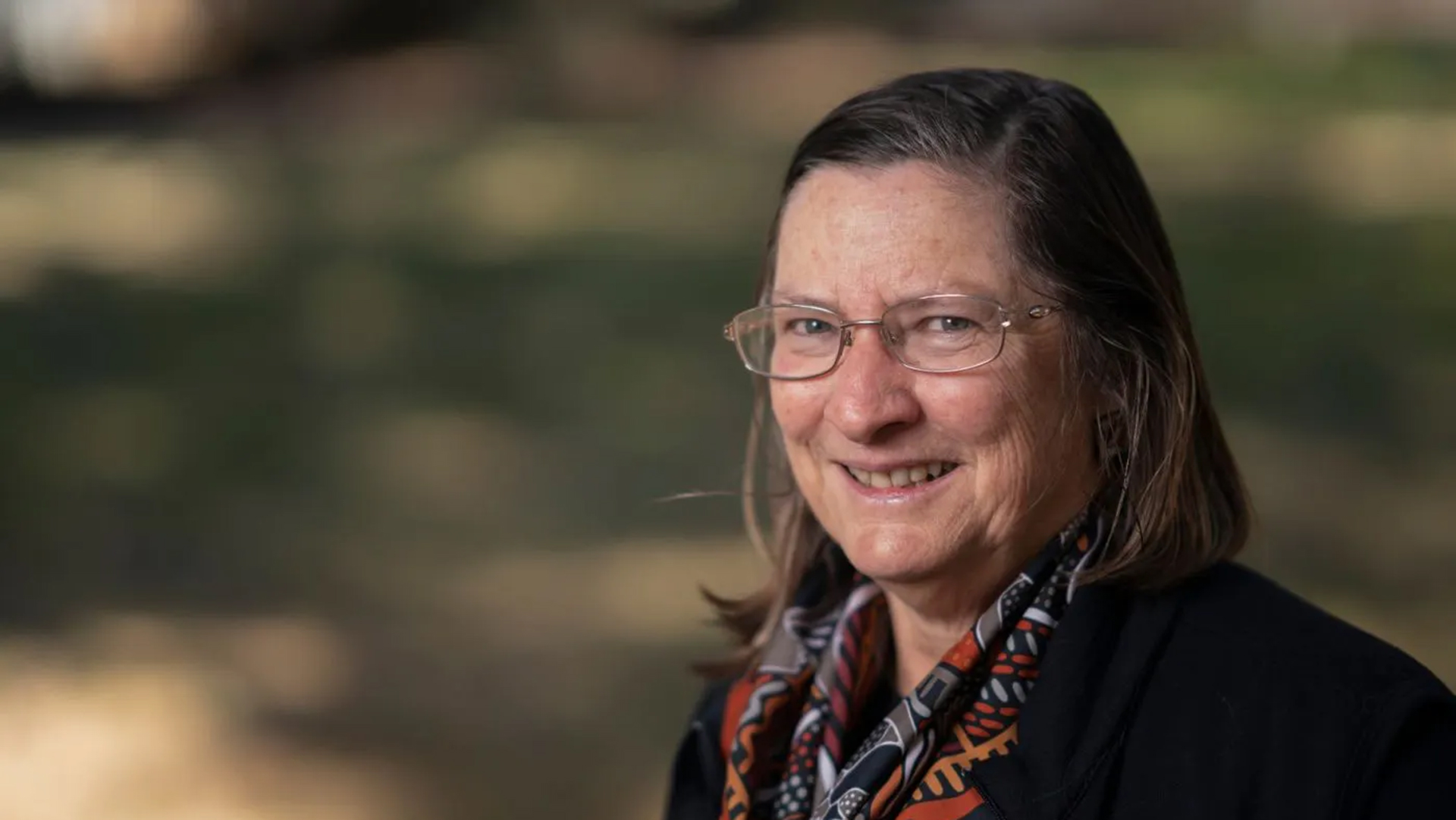
ANU Associate Professor Julie Smith says women’s breastfeeding efforts should be valued for the multiple contributions to both human and planetary health. Photo: Lannon Harley/ANU
Investment in breastfeeding as a carbon offset
To address this imbalance, the authors are calling for breastfeeding support to be recognised as a carbon offset and propose using the United Nation’s (UN) Clean Development Mechanism (CDM) as a potential platform.
Under the CDM, lower-middle-income countries could be financed by high-income countries for new policies and programs to support higher breastfeeding rates, thereby generating offsets to carbon emissions. This would include funding skilled birth attendance, maternity care, ending formula marketing misinformation, social protections like paid maternity leave, breastfeeding-friendly environments, and infrastructure investments.
“The CDM is the most important funding source for income redistribution between countries to address climate change,” said Associate Professor Smith.
“Integrating breastfeeding into this key UN carbon offset scheme benefits the populations in developing countries most burdened by the harms of the commercial milk formula industry, while acknowledging the value of women’s breastfeeding efforts for mitigating greenhouse gas emissions.”
Recognising breastfeeding investments as a carbon offset, the authors argued, would redirect international financial resources away from expanding carbon-emitting activities.
In the same issue of the Bulletin, an Editorial article by authors from the WHO Council on the Economics of Health for All team stressed that the Council “recognises the interlinked nature of health, inequality and climate crises, and calls for investments that tackle these aspects together”.
They noted the “‘forward-thinking example’ of the proposal that breastfeeding be recognized in food and well-being statistics, and investments in breastfeeding be considered a carbon offset in global financing arrangements for sustainable food, health and economic systems.”
“Urgent reorientation of economic policies is needed”, emphasised Dame Professor Marilyn Waring, an influential feminist economist and member of the WHO Council, in response to the enduring dominance of the market-centric paradigm and its accompanying measurement system.
Changes needed towards health for all
Admittedly, breastfeeding alone will not fix the crises.
But it exemplifies how a reorientation of systems of measurement and financing is desperately needed towards a new paradigm and metrics to create a more sustainable future, said Associate Professor Smith.
“Considering breastfeeding as a carbon offset isn’t about coercion or shifting climate change responsibility,” explained co-author Aoife Long from Munster Technological University.
“It’s about directing funds to governments recognizing the environmental impact of commercial milk formula markets, facilitating a gender-just transition to sustainable development, and creating an enabling environment for women who wish to breastfeed.”
Breastfeeding women nourish half the world’s infants and young children, yet, according to the experts, this is rarely resourced in national budgets.
“Feeding and nourishing children is highly gendered work that is often ignored and under-valued by policymakers,” said Dr Baker.
“Governments need to recognise women’s contributions to sustainable food production, including breastmilk, in international food balance sheets.”
“Because these values are not visible, it is harder to make a case for funding the policies and programs to protect, promote and support breastfeeding,” added Associate Professor Smith.
Radical changes should start with recognising breastfeeding as the highest-quality, local, and sustainable first-food system for generations to come, with financial resources going towards what really matters, she said.
“That is, health for all.”
**This research builds on earlier pioneering work led by several of the co-authors, including the development of the mother’s milk tool which helps estimate the economic value generated by breastmilk production.







